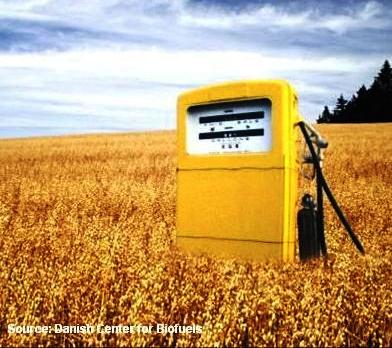Biofuels cause controversy over the food crisis
The study highlights issues related to the conversion of plants to biofuels. Occupying land and planting biofuel crops creates a dilemma: Is it reasonable to produce inefficient energy in areas that lack food?
David Pimentel and colleagues from Cornell University in New York state stressed the problems related to the transformation of plants into biofuel. Not only are these renewable energy sources ineffective, they also cause adverse economic and environmental impacts, and production is not as expected. Their findings are published directly in the journal Human Ecology.
In the absence of fossil energy - oil and natural gas - governments around the world focus on bioenergy as renewable energy solutions. At the same time, nearly 60% of the global population still lacks food and increases demand for basic food products. Planting trees, including corn, sugarcane and soybeans, to produce fuel requires important water and energy resources for human food production.
 Biomass from corn. (Photo: Worldbank.org)
Biomass from corn. (Photo: Worldbank.org)
Professor Pimentel and his team looked at the availability and use of global land, water and energy sources, especially the specific situation in the United States. They also analyzed biomass sources and said there were not enough US biomass for ethanol and biodiesel production.
Their paper reviews the effectiveness and cost associated with converting a series of plants into energy and indicates that in each case the energy required for the production process is more than the amount of energy generated.The study found a 46% warm energy recovery for corn ethanol, 50% for switchgrass, 63% for soybean biodiesel, and 58% for rapeseed. Even the most promising palm oil production has a warm energy recovery of 8%. There are also a number of environmental issues related to the conversion of crops to biofuels, including water pollution from pesticides and fertilizers, global warming, soil erosion, and umbrellas. Air pollution.
In the opinion of researchers, there simply is not enough land, water and energy to produce biofuels. They also argue that in a true way, the United States is becoming more dependent on oil, not less as intended by biofuel production. In most cases, more fossil energy is needed to make a unit of biofuel when compared to the energy it provides. Therefore, the United States is importing more oil and natural gas to make biofuels.
The authors conclude: 'Growing trees to produce biofuels not only bypasses the need to reduce natural resource use, but also increases the problem of global food shortages. Increasing the use of biofuels also harms the global environment and especially the world food system. '
Refer:
1. Pimentel D et al.Food versus biofuels: environmental and economic costs.Human Ecology, DOI: 10.1007 / s10745-009-9215-8
- Biofuels threaten food security
- Will salty wheat solve the food crisis?
- 'Biofuels push food prices up'
- Melting glaciers make the food crisis
- Keeping food security during the economic crisis
- Biofuels boom and world food shortages
- Leading candidate of biofuels
- Half of the population may face a food crisis
- Humans are about war because the food?
- Pluto will be the solution to global food security
- Make the first flight with biofuels
- The amount of nuclear warheads can destroy the Earth
 The most famous scientific failures in history
The most famous scientific failures in history Mysterious genius mechanic and the machine froze time
Mysterious genius mechanic and the machine froze time The son carries the 'bad gene' of genius Albert Einstein
The son carries the 'bad gene' of genius Albert Einstein Isaac Newton
Isaac Newton